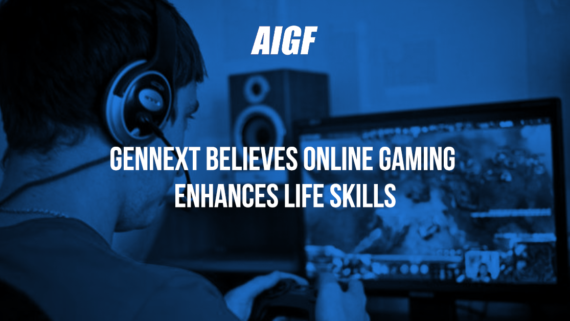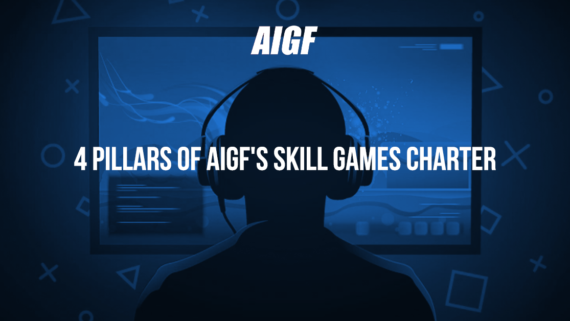The Indian online gaming industry is at the cusp of transformation, checking out a growth direction of over US$3.9 billion in 2025 as per KPMG. During the remarkable season of the pandemic, the online gaming sector was one of the quickest developing industries as the sector pulled in the critical investment of around $500m.
Skill Over Chance: Indian Gaming Industry at A Cusp of Transformation
Karnataka Assembly has passed an amendment to the Karnataka Police Act, 1963, which tries to boycott online gaming and curtail online gambling. Chief Minister Basavaraj Bommai said the proposition isn’t substantial for online games that rigorously comply with “games of skill”.
The Indian online gaming industry is at the cusp of transformation, checking out a growth direction of over US$3.9 billion in 2025 as per KPMG. During the remarkable season of the pandemic, the online gaming sector was one of the quickest developing industries as the sector pulled in the critical investment of around $500m.
Online gaming today has arisen as a significant road because of a huge number of good factors, for example, youthful and tech-savvy population, affordable accessibility of feature-stuffed smartphones, better internet connectivity, expanded awareness, and development. Thus, the domestic business can possibly scale rapidly and turn into a significant contributor.
In the new light of the occasion, with the Karnataka Police (Amendment) Bill 2021 is passed, the gaming business remains at a junction. Toward one side the progressive way encourages innovation, scientific temper, and change in a gently managed policy environment, the opposite side of the regressive way, disregards progress and change. This way advocates these boycotts being simpler to carry out than discovering solutions that can allow India an opportunity to lead the gaming space worldwide. Notwithstanding, the business players are hopeful that the right guidelines will prompt better results for the business. A large portion of India’s unicorns are situated in Bengaluru, it’s because it has progressive policies for startups, regulatory certainty, and a youthful and gifted workforce. Subsequently, the Karnataka government might hamper this picture of Bangalore and presumably the overall gaming environment of the nation by presenting a law of not denying online real money skill gaming in its State.
Mr. Roland Landers, CEO, All India Gaming Federation states, “India is the fifth biggest online gaming market all around the world and skill-based gaming, a dawn sector, is bringing forth an expanding number of unicorns inside the nation, particularly Karnataka. The sector has been a solid monetary supporter of the Indian economy in any event, during a phenomenal time of lockdown and is additionally expected to produce incomes in an overabundance of $ 3.9 billion by 2025. The sweeping development additionally implies the generation of work openings. The business presently employs 40,000 individuals in direct positions, out of which 5000 are employed in Bengaluru alone. By 2024 the online skill-based gaming industry is relied upon to employ around 2 lakh individuals. In a post-Coronavirus world where worldwide economies are grasping at straws, it isn’t prudent to be against a dawn sector. The move by the Karnataka government is a mishap to the state’s standing of being a tech-center and start-up capital.”
“The boycott in Karnataka is disconcerting for this dawn sector in India, especially when the higher judiciary has emphasized the distinction between games of skill and games of chance. That Karnataka, which is a tech and start-up capital of India, should make such a stride is even more troubling in light of the fact that a great deal of different states understands gaming’s potential and chipping away at policies to draw investments from gaming organizations taking into account sector’s gigantic multiplier benefits”, says, Dinker Vashisht, Vice President, Corporate Affairs, Games24x7.
Skill-based gaming couldn’t measure up to gambling, and forbidding isn’t an answer. Elaborating this further Justice Vikramajit Sen, a former Judge of the Supreme Court and former Chief Justice of the Karnataka High Court, added, “The Indian regulatory framework has unmistakably distinguished between games of skill and games of chance in India. Since games of skill might include an entry fee they can’t be viewed as gambling. Games of chance are viewed as gambling as it includes luck instead of skill and in this manner, it is explicitly precluded by the law, wherein games of skill are considered lawful across most states including digital and online. The sector needs the help of state governments to promote drives towards reasonable gaming and recognition of the AIGF ‘Self-regulatory Framework’. AIGF and its advisory members anticipate engaging stakeholders within the state government to make an industry portrayal on the matter.”
With genuine concerns approaching from the Karnataka Government’s move to boycott online gaming, PK Misra, President Players’ Association – AIGF and former senior IAS said, “The move will influence the online skill-based gaming sector, stopping player’s right to procure their occupation. There is no clearness on the extent of this law. Around 10-12% of India’s gaming community is situated in Karnataka, and a large number of these players who compete at the worldwide level are in fear of their occupations, yet in addition, their ability to seek after their dreams about becoming proficient players on global platforms. I unquestionably trust the state government draws an unmistakable differentiation among gambling and games of skill. Since 1957, the Supreme court has emphasized games of skill as a legitimate business ensured under article 19(1)(g) of the Indian Constitution, likewise upheld by the Karnataka High Court in different judgments.”
As an industry, we need to ensure that they are supported while guaranteeing that players have an enriching and novel experience. Expressing her perspectives, Muskan Sethi, Responsible Gaming Ambassador of All India Gaming Federation said, “Each professional gamer gives their time and efforts in working on their skills and gameplay to perform better at any domestic or global gaming competitions, and presently as the choice to boycott the online skill gaming across the province of Karnataka might influence the occupations and pay off these gamers living in that state, rather than restricting such games from the market, as a player I would recommend the government should look to devise a regulatory framework in consultation with the industry stakeholders so it supports professional gameplay and controls the rise of the dark market of gambling.”
As indicated by a FICCI statement, it is believed that banning games of skill separated from being illegal will likewise lead to massive loss of income and occupations and opportunities for users to foster their skills. The statement further recommends that if the bill boycotts online skill games, the law-abiding Indian organizations will leave the market, and the users will go to hurtful seaward and wagering applications, which are unsafe and dangerous. There are other enormous seaward and Indian gambling players, which as of now offer their services in Karnataka regardless of being illegal. Some of them are supported by huge Indian famous people, are publicizing intensely, and when the skill gaming platforms exit, considerably more users will go to these sites and applications.
Credits: TechnoSports











Comments
Comments are closed.